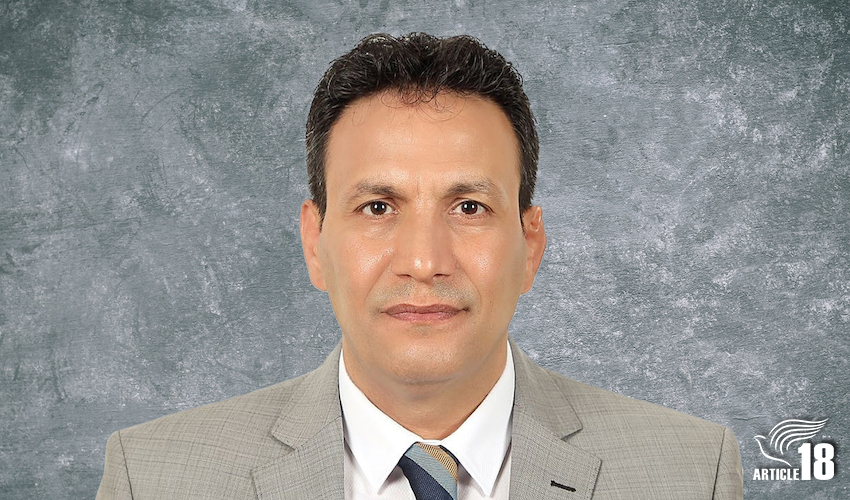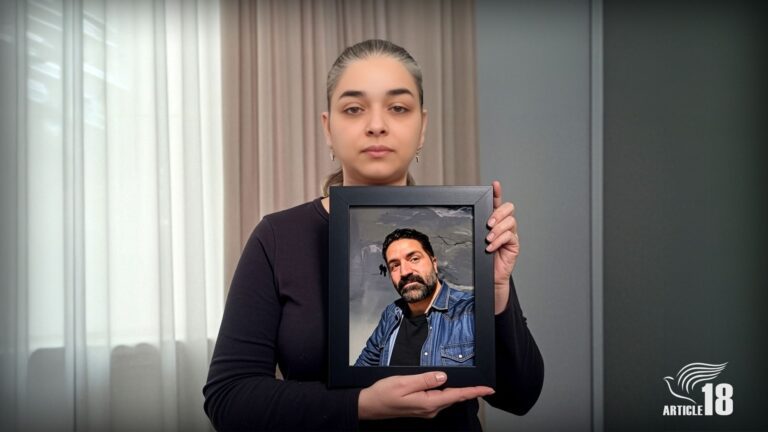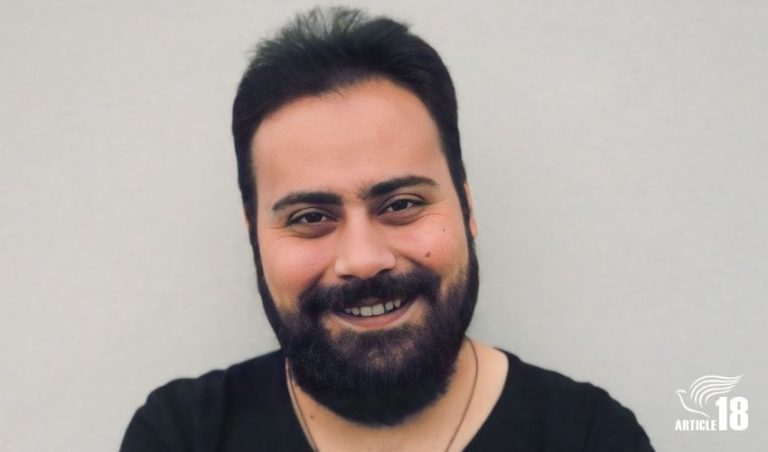
Ali Shahvari was detained for a year, including two months in solitary confinement, following his second arrest for his Christian activities.
The former drug addict, who now likes to be called Iman (meaning “faith”), had become a keen evangelist after experiencing a life-changing transformation following his conversion to Christianity, and was arrested on both occasions during visits to the homes of other new converts.
He was detained for a month, including 22 days in solitary confinement, after his first arrest in Semnan, east of Tehran, in September 2009.
But it is his treatment following his second arrest – in the southeastern city of Zahedan in June 2010 – which is particularly shocking.
Iman was taken to the notorious Haj Davood detention centre, run by the Ministry of Intelligence, which Iman describes as a “famous place where prisoners are taken to be tortured and forced to confess”.
Iman says his first solitary cell there, where he was detained for about a month, was “very dark, warm, and full of insects. For 24 hours a day, there was a noise in the cell like that of a helicopter, putting pressure on my nerves and psyche. I wasn’t allowed to remove my blindfold in the cell. There was a camera, and if I ever took off my blindfold an officer would come and beat me with a stick!”
A month later, Iman was transferred to a second solitary cell, and this time the conditions were even more grim.
“I felt very cold,” Iman explains, “so I asked: ‘Please can you increase the temperature of the AC.’
“‘Sure,’ the officer said, but then he decreased the temperature even more, so the cell became even colder. I felt frozen until the morning.
“In the morning, I told the officer: ‘You mistakenly decreased the temperature of the cell last night, and I was freezing from the cold.’
“‘I’m sorry,’ the officer said, and decreased the temperature even further.
“I realised at that moment that I was in a torture cell.”
Iman spent 36 days in this second solitary cell and says that when he later chatted to a fellow inmate – who had made a forced confession after six days to escape that same cell – “he was very surprised and said, ‘It’s impossible you came out of there alive!’”
During his time in solitary, Iman was taken for interrogations on three occasions, and during one of them he was badly beaten after failing to provide his interrogator with the answer he had been looking for.
“He punched and kicked every part of my body,” Iman says, “while my hands were tied to the chair behind my back. I fell to the floor, along with the chair, and broke my tooth.”
After two months in solitary, Iman was transferred to a “dark cell” containing a group of mentally disturbed prisoners, whose “arms and legs had been bound because they’d attacked the officers”.
“These prisoners had been tortured mentally and brought to the brink of insanity,” Iman says. “I was in this cell for about a month.”
Next, Iman was taken to a cell for prisoners on death row, whose arms and legs were also bound, “to prevent them from committing suicide”, according to Iman.
In his time in that cell, before his transfer to Zahedan Central Prison, Iman says he witnessed “more than 100 prisoners being taken away to be executed”.
But Iman’s torturous experience didn’t end there. In fact, it intensified.
“The interrogators [at Zahedan Central Prison] knew I had been addicted to drugs in the past,” he explains. “They thought that although I had been successful in enduring torture in the Ministry of Intelligence detention centre, I would definitely succumb if offered drugs again.
“This was when they truly began to torture me – by transferring my to a particular cell – cell number five, in Ward 5 … which was actually the drug-dealing centre for the whole prison.”
Iman says that of the 2,200 prisoners there, “I was the only one who didn’t smoke cigarettes or do drugs.”
And beyond the challenges Iman faced inside prison, there was also pressure from outside.
One day, he received a call from his sister, telling him their father had been called by an intelligence agent, who had said to him: “One of your sons has been martyred [in the Iran-Iraq War], and another has become an infidel!”
After hearing this, their father had had a stroke.
Iman asked for leave to visit him, but was told, “You’re more harmful to society than addicts! You’re an infidel and you should thank us you’re even still alive!”
His father died shortly afterwards.
Iman was not able to attend the funeral, while his wife and three children had to make their own way there and were ignored during the ceremony, having been ostracised from the rest of the family.
“After my father died, my brothers and sisters divided the inheritance among themselves,” Iman says. “They told me: ‘You’re an infidel; this inheritance doesn’t belong to you!’”
After five months in Zahedan Central Prison, on top of the four months he had spent in the Haj Davood detention centre, Iman was taken to a Revolutionary Court, where he was denied access to a lawyer and sentenced to a year in prison under Article 513 of the Islamic Penal Code, on charges of “insulting the sacred” (blasphemy), “acting against national security”, and “evangelical activity with the aim of attracting others and promoting deviant thoughts”.
The judge insulted him, saying: “Why don’t you stay quiet, instead of going from town to town like a crow and talking about Christianity everywhere you go!”
Having served more than two-thirds of his sentence already, Iman says he decided not to appeal.
But after his release, for the next year Iman says he was advised by church leaders to stay away from Christian activities and to devote himself to his wife and children.
He was later encouraged to leave the country, and in June 2012, two years after his second arrest, Iman left for Turkey, where he and his family have been recognised as refugees.
You can read Iman’s full Witness Statement here.



0 Comments
Trackbacks/Pingbacks